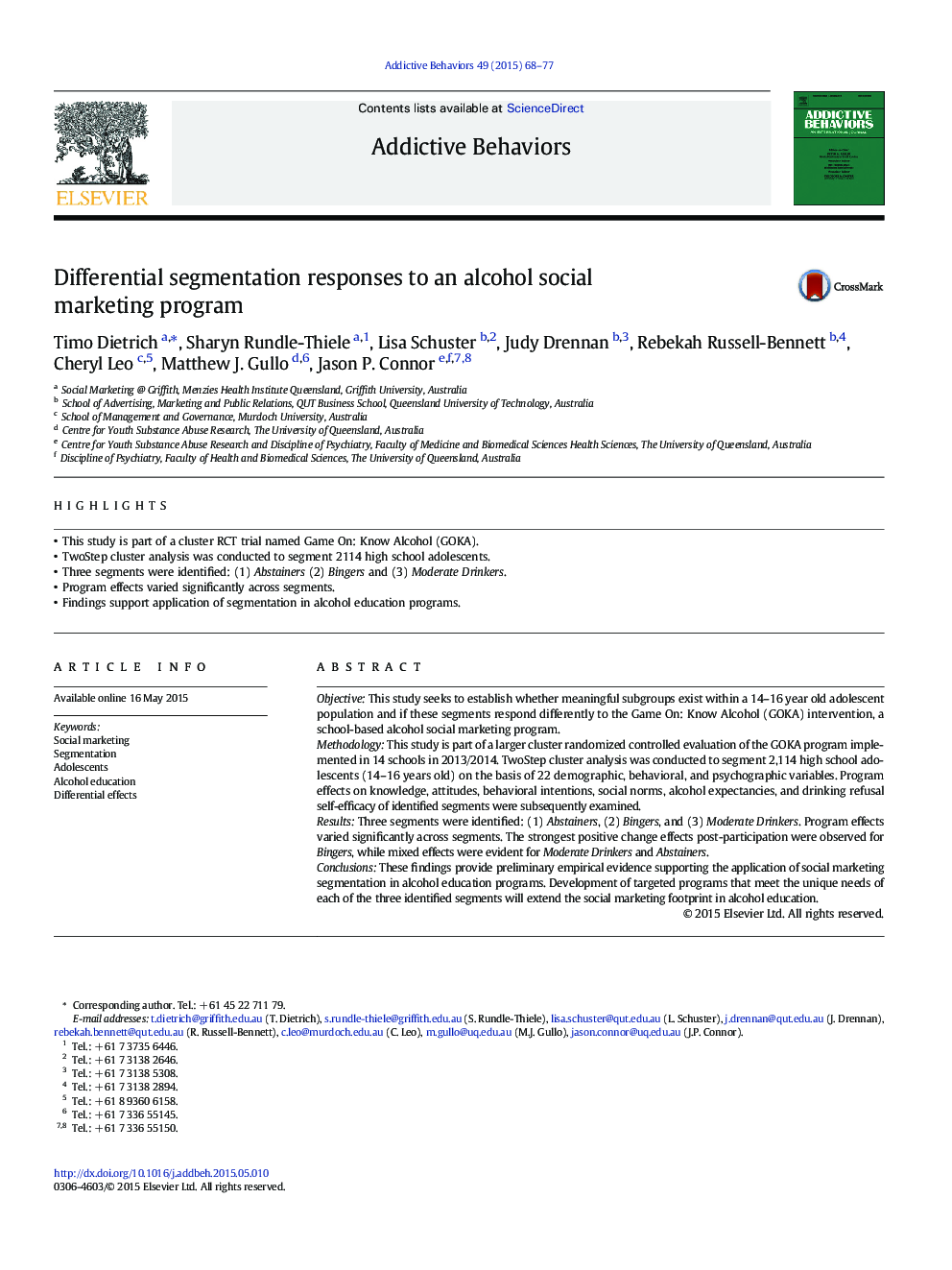| Article ID | Journal | Published Year | Pages | File Type |
|---|---|---|---|---|
| 898691 | Addictive Behaviors | 2015 | 10 Pages |
•This study is part of a cluster RCT trial named Game On: Know Alcohol (GOKA).•TwoStep cluster analysis was conducted to segment 2114 high school adolescents.•Three segments were identified: (1) Abstainers (2) Bingers and (3) Moderate Drinkers.•Program effects varied significantly across segments.•Findings support application of segmentation in alcohol education programs.
ObjectiveThis study seeks to establish whether meaningful subgroups exist within a 14–16 year old adolescent population and if these segments respond differently to the Game On: Know Alcohol (GOKA) intervention, a school-based alcohol social marketing program.MethodologyThis study is part of a larger cluster randomized controlled evaluation of the GOKA program implemented in 14 schools in 2013/2014. TwoStep cluster analysis was conducted to segment 2,114 high school adolescents (14–16 years old) on the basis of 22 demographic, behavioral, and psychographic variables. Program effects on knowledge, attitudes, behavioral intentions, social norms, alcohol expectancies, and drinking refusal self-efficacy of identified segments were subsequently examined.ResultsThree segments were identified: (1) Abstainers, (2) Bingers, and (3) Moderate Drinkers. Program effects varied significantly across segments. The strongest positive change effects post-participation were observed for Bingers, while mixed effects were evident for Moderate Drinkers and Abstainers.ConclusionsThese findings provide preliminary empirical evidence supporting the application of social marketing segmentation in alcohol education programs. Development of targeted programs that meet the unique needs of each of the three identified segments will extend the social marketing footprint in alcohol education.
